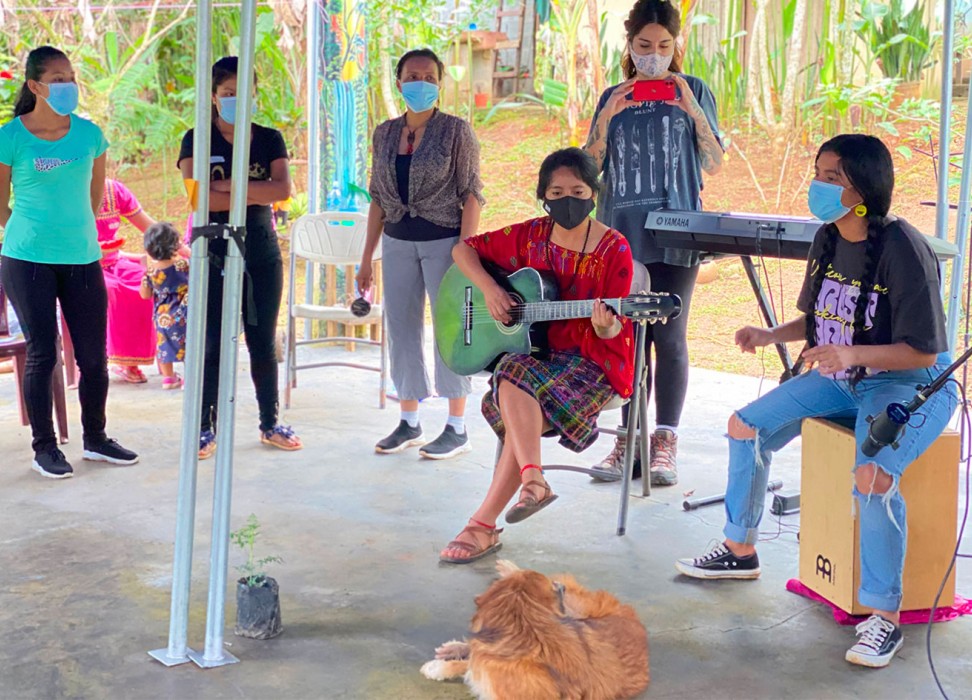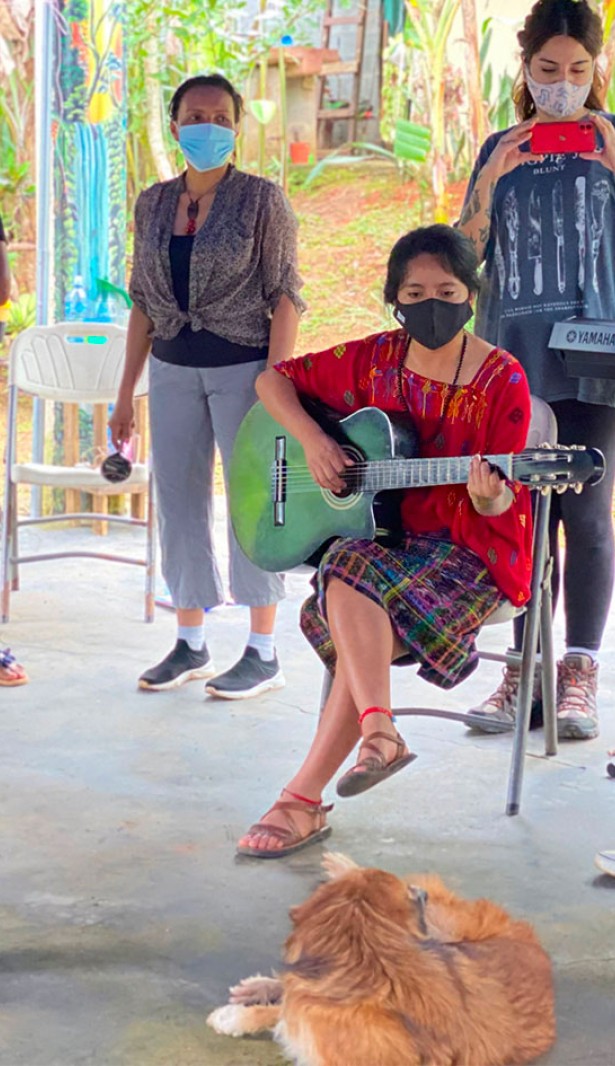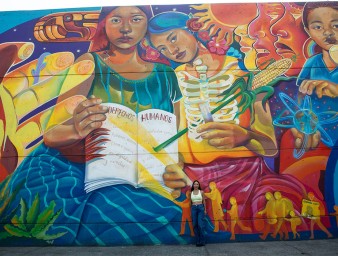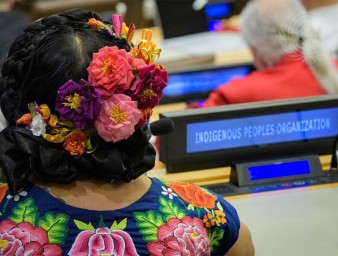Promoting the voice of indigenous women through music

With equality as the focus for Human Rights Day 2021, 14 women from Costa Rica were brought together at a human rights and music camp to identify common challenges. Negative discrimination, gender violence, inequality and lack of opportunities were all discussed. Responses were identified, as were approaches for more effective advocacy to decision-makers.
The camp took place from 22 to 26 November and was conducted by Sara Curruchich, a Kaqchikel Mayan singer-songwriter from Guatemala, and not-for-profit Costa Rican record label We Could Be Music (WCBM).
The approach was one of collective creation, with Curruchich and WCBM delivering sessions on musical composition. Curruchich also shared her experience as an indigenous artist using music to defend the ancestral knowledge and rights of indigenous peoples, standing up against racism, discrimination and violence against women.
The result was the creation of the song "Tayëla" – meaning "pay attention" in BriBri – written by the participants. Tayëla is a discourse about the strength of indigenous women and the defence of their territories.
The camp closed with a training workshop by several UN agencies on issues affecting indigenous women. The Viceminister of the Presidency of Costa Rica, the NHRI (Defensoría de los Habitantes), and the University of Costa Rica also participated in the closing section.
On December 11th, "Tayëla" will be presented to the public at a panel discussion and concert held by Ms. Curruchich, together with the 14 women now known as Icuru Tsö – the "seed that exists" – at the University of Costa Rica.
Photo credit: Cristian Dávila




